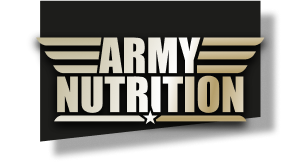A common mistake in the pursuit of muscle growth is the belief that it occurs during long workouts. However, it doesn’t work that way. While training is an important stimulus, muscle growth occurs during the recovery phase. Why, and how can this process be supported?
Muscle Regeneration After Exercise
During training, the effort on muscles damages their cells and fibers. As a result, the body sends a signal for their restoration, i.e., regeneration. When this process is repeated, muscles gradually grow, and you gain more strength. To achieve significant muscle growth, regular challenging training is essential, forcing muscles to adapt to increased loads. The level of protein synthesis increases, where testosterone and growth hormone play crucial roles.
Effective Muscle Regeneration
Regeneration cannot be accelerated, but it can be made more efficient. To sufficiently regenerate exercised muscle groups, a minimum of 48 hours is needed, and it is recommended to allow up to 72 hours. During this time, you can focus on exercising other muscles.
The protein synthesis process after training is regulated by growth hormone and testosterone. In the absence of testosterone, this process is limited. It’s also important to choose the right type of training. Strength training with higher loads or high-intensity training does not negatively affect testosterone levels, which are essential for muscle growth. On the other hand, endurance training causes a decrease in testosterone levels.
Nutrition and Sleep also Affect Regeneration
To promote muscle growth, it’s necessary to ensure that your body synthesizes more muscle proteins than it loses during exercise. Proteins make up about 20% of muscle tissue. Therefore, they are crucial in this process, and you should consume 1.2–2 g per kilogram of body weight.
It’s also essential to note that for optimal regeneration, you should ensure a 10–20% higher calorie intake to provide energy for the recovery process. The proteins consumed must be of high quality, including complex carbohydrates and fats. Equally necessary is to rest after training. Quality sleep ensures more effective muscle recovery.
Muscle Growth and Hormones
Even with sufficient protein intake, calories, relaxation, and sleep, protein synthesis in muscles won’t occur without hormones. In this case, cortisol is your enemy, as it suppresses testosterone production. Therefore, avoid prolonged stress or mental exhaustion. You should also aim for an optimal training duration of up to 45 minutes, as longer training leads to cortisol release.
Testosterone — Key Role in Muscle Growth
Optimal testosterone levels contribute to higher bone strength, minimizing the risk of injuries and aiding in muscle growth. This hormone is beneficial not only after exercise. Testosterone ensures that you have enough energy to perform the expected performance in the gym, and it also improves concentration and memory. To achieve muscle growth and more effective recovery, it is advisable to supplement testosterone. You can choose herbal-based testosterone boosters that support its production in the body. Their advantage is that they do not impose a burden on the body in the form of artificial chemical preparations.
